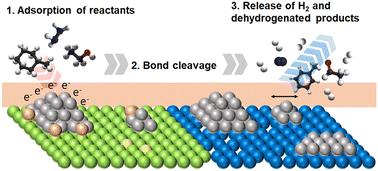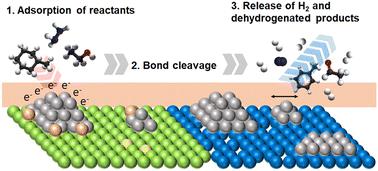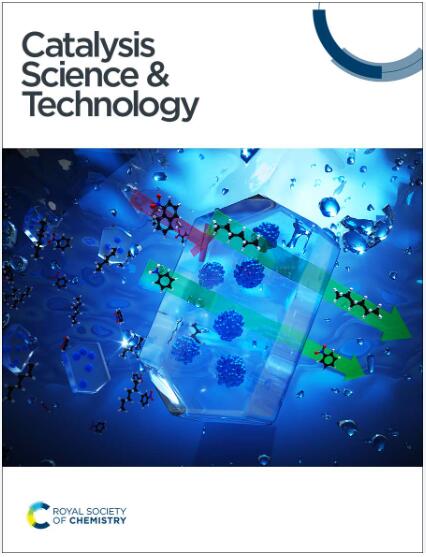Catalytic dehydrogenation for hydrogen production controlled by metal-supported heterogeneous catalysts
IF 4.2
3区 化学
Q2 CHEMISTRY, PHYSICAL
引用次数: 0
Abstract
Dehydrogenation is a chemical reaction that produces value-added hydrogen-deficient chemical compounds with hydrogen molecules that can be ubiquitously used in chemical industries. Due to the bond-breaking process, dehydrogenation is usually endothermic, and it requires high energy input for achieving the sufficient reaction performance. Therefore, catalysts play an important role in lowering the activation barrier, and thereby enhancing the activity and reaction rate, and they also govern the product selectivity via control of the reaction pathway on the catalyst surface. The metal–support interaction (MSI) is a unique interaction occurring at the interface of metal nanoparticles and metal oxide supports in the solid-phase heterogeneous catalysts, which changes the electronic properties of the catalyst surface and hence the catalytic process. The control of MSI in the design of heterogeneous catalysts provided many opportunities for developing advanced catalysts having better catalytic performance. Herein, our comprehensive review explores the significant impact of MSI on catalyst design, emphasizing enhanced activity, superior product selectivity, and prolonged catalyst lifetime in dehydrogenation reactions. The discussion is structured around diverse perhydro molecules, highlighting the versatile applicability of MSI in tailoring catalysts for specific dehydrogenation processes.


由金属支撑异质催化剂控制的催化脱氢制氢技术
脱氢是一种化学反应,它能用氢分子生成可在化学工业中广泛使用的高附加值缺氢化合物。由于键的断裂过程,脱氢反应通常是内热反应,需要高能量输入才能获得足够的反应性能。因此,催化剂在降低活化势垒,从而提高活性和反应速率方面发挥着重要作用,催化剂还可以通过控制催化剂表面的反应途径来控制产物的选择性。金属-载体相互作用(MSI)是固相异相催化剂中金属纳米颗粒和金属氧化物载体界面上发生的一种独特的相互作用,它改变了催化剂表面的电子特性,从而改变了催化过程。在设计异相催化剂时对 MSI 的控制为开发具有更好催化性能的先进催化剂提供了许多机会。在本文中,我们将全面探讨 MSI 对催化剂设计的重大影响,强调在脱氢反应中增强活性、提高产品选择性和延长催化剂寿命。讨论围绕不同的过氢分子展开,突出了 MSI 在为特定脱氢工艺定制催化剂方面的广泛适用性。
本文章由计算机程序翻译,如有差异,请以英文原文为准。
求助全文
约1分钟内获得全文
求助全文
来源期刊

Catalysis Science & Technology
CHEMISTRY, PHYSICAL-
CiteScore
8.70
自引率
6.00%
发文量
587
审稿时长
1.5 months
期刊介绍:
A multidisciplinary journal focusing on cutting edge research across all fundamental science and technological aspects of catalysis.
Editor-in-chief: Bert Weckhuysen
Impact factor: 5.0
Time to first decision (peer reviewed only): 31 days
 求助内容:
求助内容: 应助结果提醒方式:
应助结果提醒方式:


